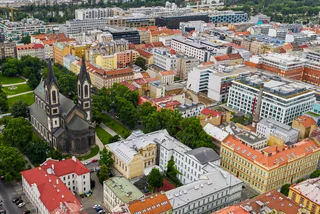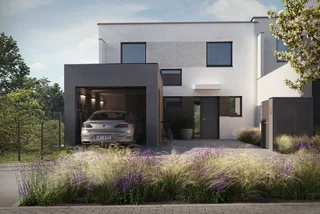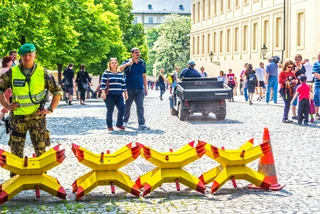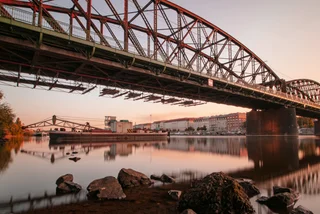Prior to the Covid pandemic, Airbnb affected life in Prague more than most major cities. The holiday rental app has been blamed by many for pricing locals out of the property market in the city center, with a Forbes analysis previously finding Prague to be the world’s second most profitable city to rent a property through Airbnb.
The reduction in travel resulting from Covid restrictions for much of the last two years has dealt a serious blow to the profitability of owning an Airbnb flat in Prague, though, according to new data from the Prague Institute of Planning and Development (IPR Prague). The number of properties in Prague available for rent through Airbnb has more than halved in a two-year period.
A total of 6,972 units were offered through Airbnb in July 2021, 7,000 fewer than in the same month in 2019.
The most desirable Airbnb properties were more likely to survive on the platform. The majority of the apartments still on offer in 2021 were in the city’s historical center; as many as 14.5 per cent were in the Old Town itself.
“Most of the apartments on Airbnb are concentrated in the historical center of Prague. In absolute terms, the highest number can be found in Nové Město (1,696), where there is also a high concentration of hosts managing as many as ten or more apartments at a time,” said Petr Hlaváček, Deputy Mayor of Prague.
The City of Prague is trying to impose harsher limitations on Airbnb operators to protect locals. Last October, the first fine was issued by authorities for an Airbnb operator not following the same tax regulations as other accommodation providers such as hotels.
“Although the Covid pandemic has led to a considerable decrease in the number of apartments, especially among hosts who were managing only one apartment, certain problems with this type of accommodation still exist,” admitted Hlaváček.
With travel expected to return closer to pre-pandemic levels in the coming months, more properties will likely return to the Airbnb market. This will, in turn, take properties off the long-term rental market.
“In 2018, the number of apartments offered on Airbnb was almost 60 per cent higher than the number of apartments available for rent on Sreality. This year, the situation almost reversed, with Sreality offering 40 per cent more apartments than Airbnb,” said IPR Prague Director Ondřej Boháč.
Although Prague is trying to get tough on Airbnb rentals, authorities don't have the sweeping legislative powers available to other European cities. In Paris, properties can only be offered as tourist accommodation for a maximum of 120 days a year; in Amsterdam, a maximum of 30 days is in place. In Barcelona, hosts must obtain a license to provide accommodation; no such licenses have been granted in the city center since 2015.
As well as changing the tax status of Airbnb businesses last year, Prague authorities also made it mandatory that the regular use of apartments for short-term accommodation services be approved by local building authorities. Data on activities must also be regularly submitted to ensure proper regulation of the market.












 Reading time: 2 minutes
Reading time: 2 minutes 




























